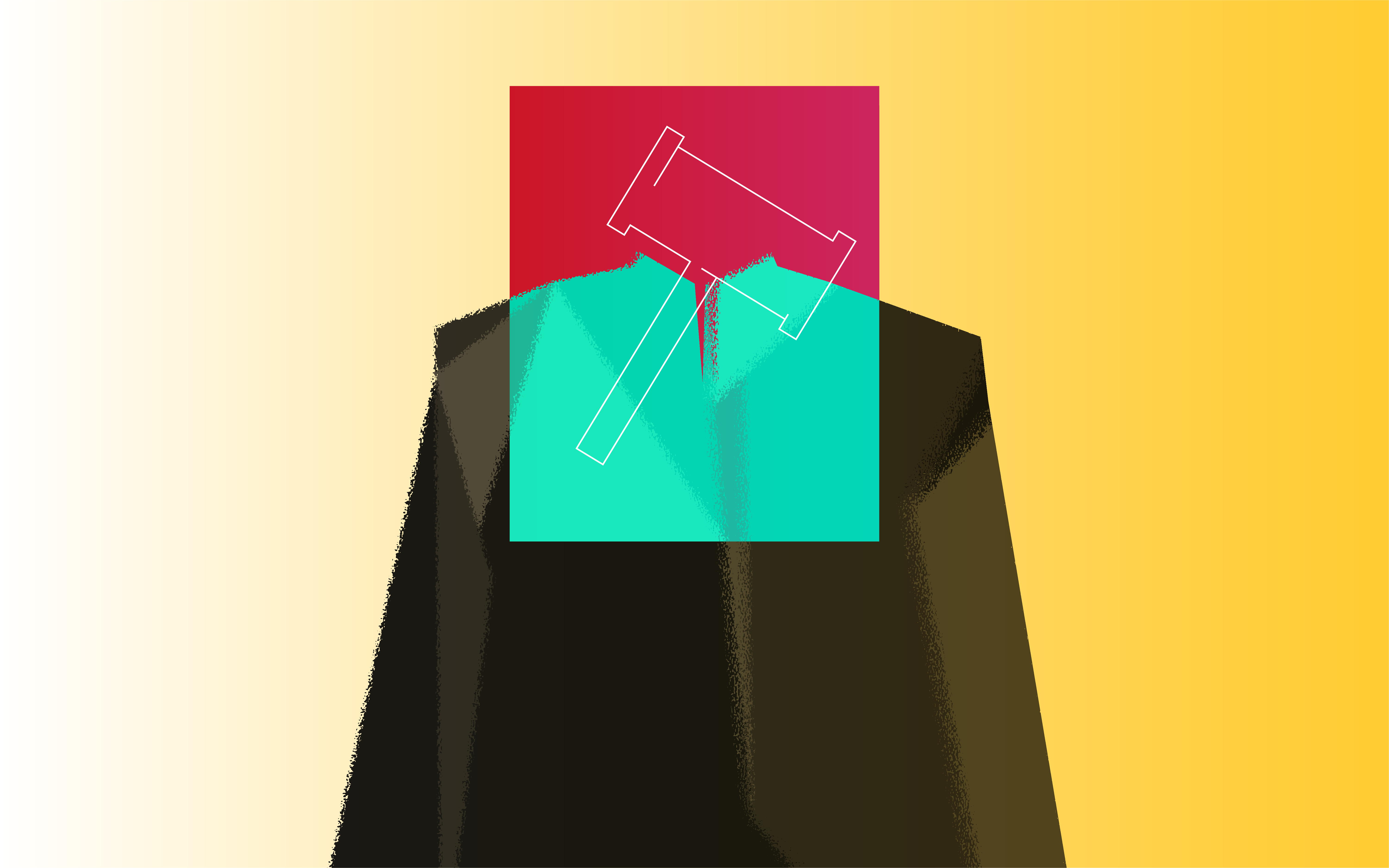In Part 84, Judge Mader explains the hierarchy of court assignments. She then details the case of a mentally ill defendant accused of assault and the tension between the need to prosecute crime and the desire to help someone in crisis.
You can find links to all installments of Inside the Robe here.
October 24
At the end of the calendar year, judges who are frustrated with their assignment wonder whether they will be transferred. For many years I was one of those judges. I felt trapped at the Airport Courthouse, even though I occupied a desirable felony trial court. “We are at the pinnacle of our legal profession,” a friend remarked, “but when we begin judging, we start at the bottom again.” Many judges don’t understand this when they begin judging. They expect to preside over the most interesting and complex cases from the beginning. That doesn’t happen. They also don’t understand that they can be exiled as easily as they can be promoted.
A beginning judge in Los Angeles usually starts in a traffic court. A gradual transition to judging, where mistakes don’t have serious consequences, is an ideal first assignment. Everyone notices whether a new judge is making a smooth transition from advocate to judge, and a judge’s jacket, or reputation, is forged at the beginning of their career. A new judge might have temperament problems, or workload management issues. Can they get along with their fellow judges?
A judge who starts off as a problem may be sent to an outlying court, and never assigned the type of courtroom they want. Politics and gossip play a part. It’s not acknowledged, but when court leadership changes, allies get lucky and detractors suffer. That’s what happened to me. When I began, I was “in.” I was efficient at moving a calendar, and my sentences weren’t out of line. Recruited to transfer to another district, I started doing felony trials immediately. Then I got stuck. I challenged the judge who ran my courthouse. It didn’t matter that I was right; what mattered was the judge I challenged had friends in high places. I spent a decade out of favor. Would I do it again? I like to think that I have courage, but how many decades of my career can I squander being right?
Court leadership drastically changed again, and I reverted to being “in.” I teach classes. I edit the judges’ statewide magazine. It’s harder to mess with me as I have a respected record and stats. I have colleagues who continue to be frustrated with their assignments, though, and there may be no end in sight.
As there’s no traditional judge “supervisor,” there are no performance evaluations. It’s all a big black hole. Some judges toil for years, hoping for advancement, and are never told how to improve. After time passes, and they’re not transferred to a more advanced assignment, some judges get the message, give up, and ask to move to civil, juvenile, family, or anywhere else with a fresh start.
While hearing the testimony of the victim of the defendant’s assault, my mind wandered to the abysmal treatment of the mentally ill in our criminal justice system. This defendant does not belong on the street. He falls between the cracks between the criminal justice and the mental health system. Living in a regulated setting where someone makes sure he takes his meds would be a win for all of us.
Testifying through an interpreter, the victim says, “The defendant spat at me, then lifted an orange juice bottle above his head, but he didn’t swing it at me. The bottle never hit my body.” This case is not worth four years in state prison. It sounds like a misdemeanor assault and battery, worthy of county jail. I could stop the misery, take the case out of the prosecutor’s hands, allow the defendant to plead guilty to a misdemeanor, and put him in a one-year residential mental health program. I have to ask myself, “Is it worth risking the wrath of the DA’s office, or letting them suffer their own humiliation when he’s found not guilty? I’m going for the latter.” The injury/scrape to the victim’s hand turns out not to have been caused by the defendant but occurred as the victim grabbed the zipper of the defendant’s jacket as he pushed her away.
October 25
I woke up this morning thinking about the trial. This is a classic screw-up. Police officers make an arrest, stop looking into the case, and never re-interview the victim. Months pass. All the while the defendant is in jail. The prosecutor is told by his supervisor, “You’re going to trial on this felony assault. It starts tomorrow. The victim has been subpoenaed to be in court.” When the victim told the story on the witness stand, it was different from the first telling. Not because the victim is lying. The first interview of a victim, sometimes using a victim’s friend as the interpreter, is not always accurate.
Local police departments are under pressure to “close” cases quickly, usually by making an arrest. The officer or detective moves to the next case and all investigation stops. Prosecutors meet the victim, witnesses, and investigating officers shortly before the trial begins, if they are lucky. They are just as surprised as everyone else when the testimony on the witness stand doesn’t match what was said in the original arrest reports.
Everything gets back to budgets. Police departments and prosecutors’ offices need investigators. Investigators cost money and there’s never enough to hire necessary investigators. Police departments want to show stats that they’ve closed cases and made arrests. There’s no budget for more investigation after an arrest is made. District Attorneys’ offices need trial stats, too. Juries’ and judges’ time are often wasted hearing trials that have not been properly worked up. In the federal system, it is harder to make such mistakes. Federal cases continue to be investigated after a grand jury indicts and up through the trial.
An article about body cameras on police officers recently expanded my thinking. Videotaping police encounters, especially when unlawful force may be claimed, is valuable for the police and the accused. I never considered, however, the effect of body cameras on personal privacy. Most police encounters are simple day-to-day encounters with non-violent regular people.
A police officer may discuss drug or gang issues with a child’s parents. The police might arrive at a household where someone is lying on the floor from an overdose or a self-inflicted gunshot wound. Should the world see that bodycam footage? How will these images be stored and be provided in lawsuits? When the police engage in a controversial shooting, it can be beneficial for everyone to see the footage. But a camera shouldn’t intrude on all police-public encounters.
October 26
After my morning calendar I spent my day reviewing the transcript of a preliminary hearing. A defense attorney before me is making the argument that the preliminary hearing judge was wrong in sending the case for jury trial. It’s my job to review the other judge’s decision and figure out whether the other judge made a mistake.
All felony trial judges have one or two “feeder” judges who hear our cases first at preliminary hearings and then send the cases to us for a jury trial. We constantly read the transcripts of the preliminary hearings the feeder judges conduct. I might not know the feeder judge well enough to have a personal conversation, but I know how they think and the quality of their work. A feeder judge who talks too much on the record is annoying. Some feeder judges make poor decisions or are rude to litigants. The best feeder judge is concise and makes clear rulings backed by case law that I can rely upon. Once I had a feeder judge who wrote lengthy but clear and concise rulings and read them into the record. That was a delight.
October 27
The jury returned and found the mentally ill defendant not guilty of any crime. Not even the lesser crime of simple misdemeanor assault. The trial deputy agreed with me before the trial started that the defendant was mentally ill and needed a program. Her supervisor was adamant that he would not “reward” the defendant with a misdemeanor and ordered the prosecutor to continue the trial. Perhaps the supervisor thought, “This whining prosecutor doesn’t want to try the case. She needs to be forced to finish the trial.”
Now the defendant will be released to the streets without psychological help and without his meds. He will go right back to the church steps around the corner from the victim’s shop. He will see the victim on the street and spit at him again. I don’t understand why the DA’s office is so unrealistic when dealing with mentally ill defendants. They don’t want this man back on the street. Yet they made it all possible.
This morning I reviewed the personnel records of two police officers. The purpose was for me to see if there was anything relevant in the officers’ personnel records that could be used by the defense in a jury trial. Due to police union objections to invading officers’ privacy, there are guidelines for turning over information. The most common areas of inquiry are: Have other people complained that this officer uses excessive force? Have others accused the officer of dishonesty?
I’ve read thousands of such investigations. As LAPD inspector general, that was my job. Many current investigations are now accurately resolved by reviewing video from the encounter. For officers accused of bias or verbal abuse, the videos can be a career saver in showing the complainant was exaggerating or lying. If a police officer acted inappropriately, that’s also on the video. When it was always a “he said, she said” and no video, the complaint often was categorized as “unresolved.” Officers have been disciplined for not turning on their camera promptly during an encounter. The penalty for not turning on the camera could be less than the penalty an officer would receive if a supervisor sees what actually happened.
October 31
Today is Halloween, another day on which there are few jury trials starting. Jurors as well as judges are parents of small children and want to get home early. Why should a judge begin a trial on Halloween, and have to listen to excuses, both valid and phony, explaining why jurors can’t serve?




